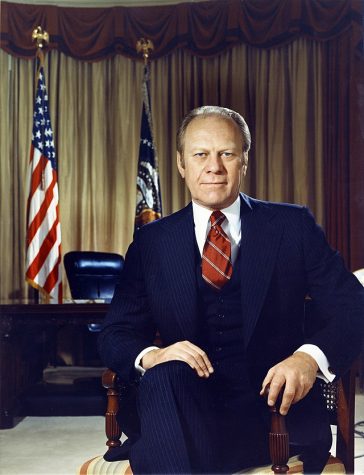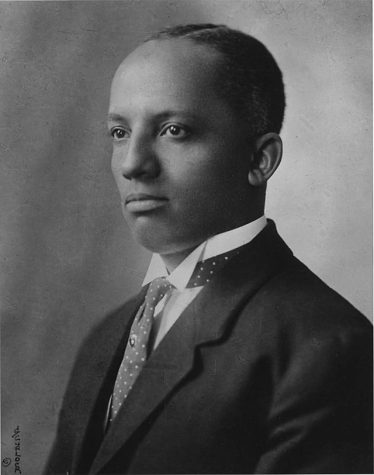How Was Black History Month Started?
March 13, 2023

During the month of February, Valentine’s Day is not the only thing that will be celebrated. In the United States, the month of February is also known as Black History Month. It is the month when the country celebrates African American history, pays tribute to African Americans throughout history and honors African Americans today. In 1976, President Gerald Ford decided that February would officially be recognized as Black History Month to, “seize the opportunity to honor the too-often neglected accomplishments of black Americans in every area of endeavor throughout our history” (vanderbilt.edu). But who inspired this celebration?

Source: Wikimedia Commons
Black History Month started with Carter G. Woodson, often called the father of Black History. According to naacp.org, “Woodson came to believe that African-American contributions were overlooked, ignored, and even suppressed by the writers of history textbooks and the teachers who use them”. In the summer of 1915, Woodson traveled to Chicago for an event that highlighted the progress African Americans had made in the U.S. This is when he decided to start an association for studying the life and history of black people. This association would encourage other black organizations to discuss African American achievements with others.
In 1924, Woodson and his association created a week dedicated to Black history and literature. But he did not stop there. Woodson wanted to have people in the future study and celebrate African Americans as a race and to bring greater focus to people of color who have helped to develop and advance society.
According to asalh.org, “Woodson chose February for reasons of tradition and reform. It is commonly said that Woodson selected February to encompass the birthdays of two great Americans who played a prominent role in shaping black history, namely Abraham Lincoln and Frederick Douglass, whose birthdays are the 12th and the 14th respectively. More importantly, he chose them for reasons of tradition. Since Lincoln’s assassination in 1865, the black community, along with other Republicans, had been celebrating the fallen President’s birthday. And since the late 1890s, black communities across the country had been celebrating Douglass”.
Carter Woodson died in 1950, over a decade before Black History Month was established and over twenty years before it was recognized as a public observation. He would not see the peak of the Civil Rights Movement, nor would he see an end to segregation. But one thing is for certain; Woodson inspired an annual observation that has brought the races together through studying the history and culture of African Americans. This February, many people unite to learn more about Black history, literature, culture and much more, and Carter G. Woodson is the one who started this tradition.































